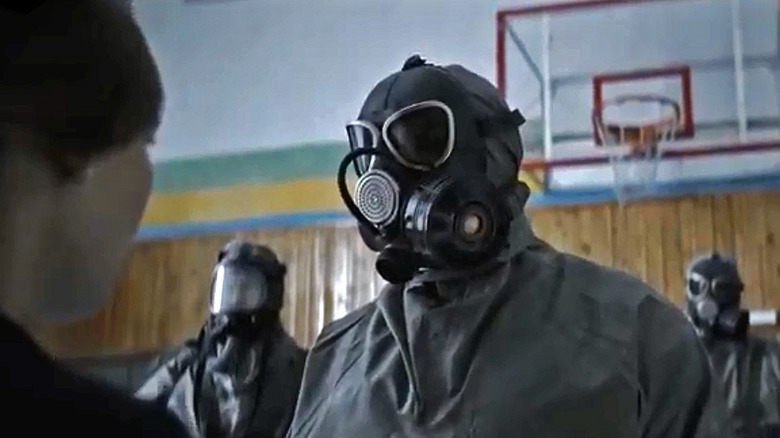Ukrainian Film Academy Calls For Film Industry To Boycott Russia
While everything happening in Ukraine might sound like a horror movie, unfortunately, it is not. As Vladimir Putin's invasion of Ukraine enters a third day, the entertainment world has been doing what it can to denounce the Russian president's actions. Formula One cancelled the Russian Grand Prix in September. UEFA, the governing body of European soccer, announced that the Champions League final on May 28, 2022 would be moved from St. Petersburg to Paris. And the Eurovision Song Contest, which is one of the biggest televised events in all of Europe every year, has banned Russia from competing.
Now, some of Ukraine's most prominent film and television bodies are calling for the termination of business with companies based in Russian and a boycott of Russian media. Leading the charge in this call to action is the Ukrainian Film Academy and the organizers of Kyiv Media Week.
Ukrainian Film Academy
The Hollywood Reporter tells us that the Ukrainian Film Academy, the national group representing the country's film professionals, has started a petition that calls for an international boycott of Russian media and the Russian film industry. They are looking for producers to discontinue licensing their movies and shows to Russia and for international film festivals to ban Russian films from their line-ups. In the petition, they point out that while many condemn the invasion, the country (and therefore Putin) benefits from cultural activity.
"We urge you to terminate all contracts with them. Remember that the business that will use your films pays taxes to the Russian budget, which finances the army that violated the borders of an independent state and buys missiles to bomb the civilian population of Europe."
Kyiv Media Week
Similarly, Kyiv Media Week, a 10-year-old international film and TV market serving Eastern Europe, is targeting Russian propaganda. In a letter issued to international media including Variety, the group shows support for Ukraine's Ministry of Culture and Information Policy and asks supporters of Ukraine to refrain from broadcasting Russian channels from their countries.
In an effort to provide "reliable and truthful information relating to Russia's war against Ukraine," a number of entities including 1+1 media, StarLightMedia, Media Group Ukraine, and Inter Media Group have joined forces to produce a single newscast called "United News." By presenting a united front against misinformation and requesting that content providers block channels like First Channel, Star, TNT, Russia Today, and Ren TV, they hope to combat Russian propaganda about the ongoing crisis.
"We objectively and promptly provide comprehensive information from different regions of the country 24/7. We are ready to provide TV providers with our signal, and thus, ask you to help spread this information."
Why would it matter to cut off Russia from sports, film, television, or entertainment in general? Well, as we all learned throughout the ongoing pandemic, these things matter to people and they provide comfort in hard times. Moreover, cultural exports like film and demonstrations of athletic prowess in sports competitions contribute to a country's "soft power" — making the country appealing and sympathetic on the world stage. South Korea's government, for example, has heavily invested in building the country's soft power, which is why Korean shows like "Squid Game," movies like "Parasite," and pop bands like BTS have gained such reach and popularity around the world.
From a more directly practical standpoint, all of those industries contribute a good bit to a country's economy and that money can be used for a number of things like universal healthcare ... or warfare. And with Russia's film and television industries steadily growing over the past number of years, a boycott could have a significant impact on both the country's economy and the mood of its people.


